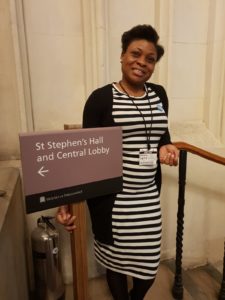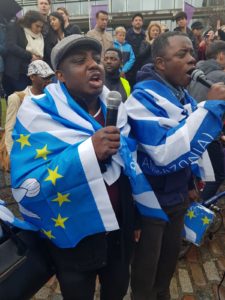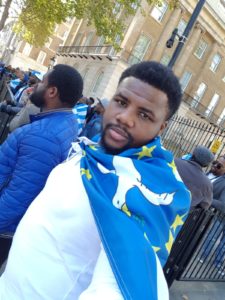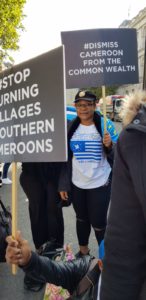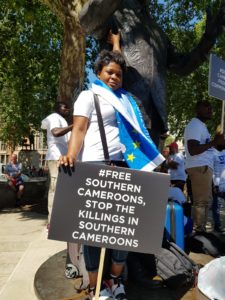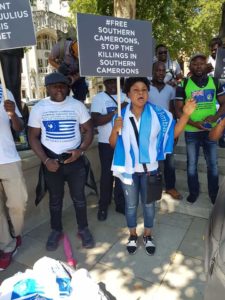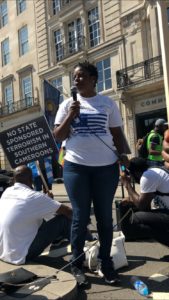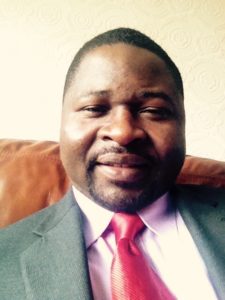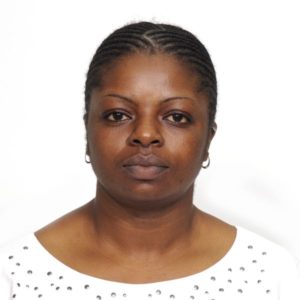WE MUST RESIST
The Cameroonian authorities must immediately and unconditionally release all arrested both in the north west and South West regions of Cameroon, not forgetting Mr Ayuk Tabe Julius and his entire cabinet who were also illegally adopted and deported from Nigeria earlier this year, and lift the ban imposed on SCNC ( Southen Cameroons National Council).
On 17 January the Minister of Territorial Administration banned the activities of the Southern Cameroon National Council (SCNC) and the Cameroon Anglophone Civil Society Consortium (CACSC). The president of the CACSC, Barrister Nkongho Felix Agbor-Balla, and its Secretary General, Dr. Fontem Aforteka’a Neba, were arrested, sparking protests in the southwest city of Buea.
On the same day both Agbor-Balla and Dr. Fontem Neba had signed a statement calling for protest activities to be carried out without violence.
“These two men have been arrested solely for the peaceful exercise of their right to freedom of expression. This flagrant disregard for basic rights risks inflaming an already tense situation in the English-speaking region of the country and is clearly an attempt to muzzle dissent,” said Ilaria Allegrozzi, Amnesty International Central Africa Researcher.
According to the Minister of Territorial Administration, “all activities, meetings and demonstrations initiated or promoted by the Southern Cameroons National Council (SCNC), the Cameroon Anglophone Civil Society Consortium (CACSC), any other related groups with similar objectives or by anyone partisan to these groups, are hereby prohibited all over the national territory”.
The government has accused the two groups of supporting a series of demonstrations that began in late October 2016 across several cities in the English-speaking region of Cameroon. The protesters were calling, among other things, for an end to the use of French in courts and schools. These protest were met with fierce reactions from the brutal and dictatorial regime of President Paul Biya resulting to many deaths on the side of innoncent civilians.
“This worrying pattern of arbitrary arrests, detention and harassment of civil society members is entirely at odds with the international human rights law and standards that Cameroon has committed to uphold,” said Ilaria Allegrozzi.
We have on our part in the diaspora, taken upon ourselves to resist the brutal and dictatorial regime of President Paul Biya by protesting and carring out online petitions to call the attention of the inter National community to look for measures of bringing this war to an end and subsequently calling on the United nations to effect a referendum giving the people of Southern Cameroons the choice to decide their fate. Done by Comrade Winifred Nenkaa Ndomo

